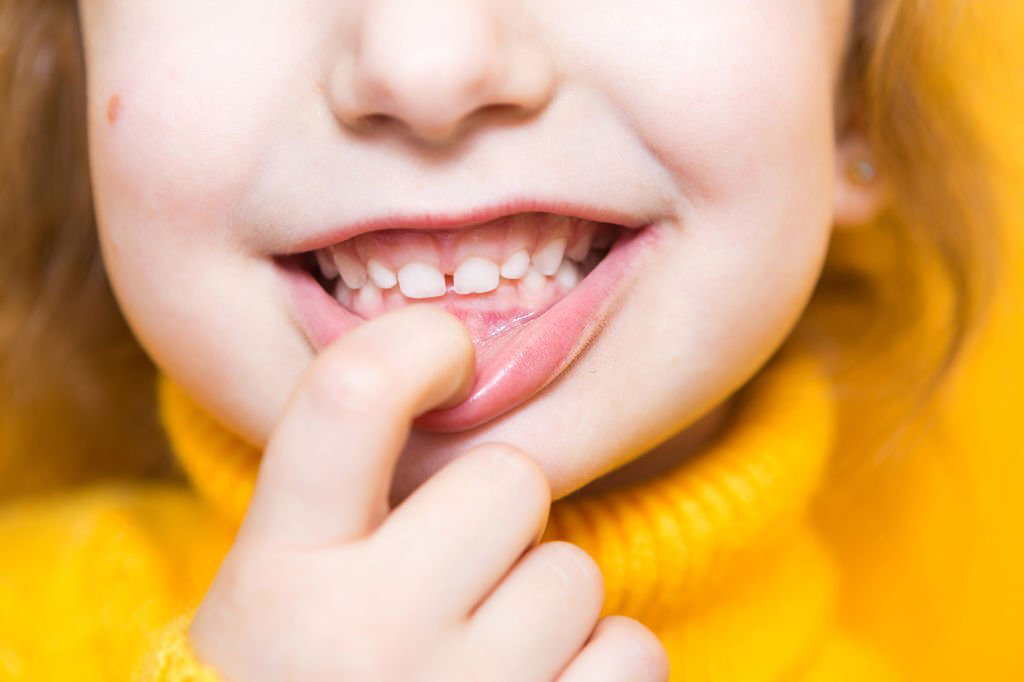As a parent or parent-to-be, there are countless milestones you eagerly await in your child's life, from their first smile to their first steps. One milestone that often comes with its fair share of challenges is teething. The process of your baby's teeth erupting can be both exciting and exhausting. In this comprehensive guide, we will delve into everything you need to know about teething, from when it typically begins to how to care for your baby's new teeth. So, grab a cup of coffee and get ready to become an expert on your little one's pearly whites!
Teething is a natural and necessary part of your baby's development. It marks the arrival of their first set of teeth, which will serve them throughout their lives. Understanding the teething process can help you support your child during this sometimes uncomfortable phase.
Before we dive into the details, it's important to note that every baby is unique, and their teething experience may not align perfectly with the timeline we discuss. Some babies may start teething earlier or later than others, and that's perfectly normal. With that said, let's explore the typical teething timeline.
The age at which babies start teething can vary. Most commonly, you can expect your little one's first tooth to make its appearance between the ages of 4 to 7 months. However, some babies may start teething as early as 3 months, while others may not show signs until around their first birthday.
The order in which teeth erupt also varies among babies. Typically, the bottom front teeth (lower central incisors) are the first to emerge, followed by the top front teeth (upper central incisors). From there, the teeth will continue to fill in along the gums, with the molars and canines making their appearance later on.
It's important to remember that teething is a gradual process, and your baby may experience different stages of teething over a period of months or even years. Understanding the normal teething timeline can help you anticipate and prepare for the changes to come.
The teething process can be broken down into different stages, each marked by the eruption of specific teeth. Here is a general timeline of when you can expect your baby's teeth to make their debut:
Stage 1: Lower Central Incisors (4 to 7 months)
Stage 2: Upper Central Incisors (8 to 12 months)
Stage 3: Upper Lateral Incisors (9 to 13 months)
Stage 4: Lower Lateral Incisors (10 to 16 months)
Stage 5: First Molars (13 to 19 months)
Stage 6: Canines (16 to 22 months)
Stage 7: Second Molars (25 to 33 months)
Remember, these are approximate ages, and your baby's teeth may not follow this exact order or timeline. It's always best to consult with your pediatrician or dentist if you have any concerns or questions about your child's teething progress.
Teething is a process that takes time. While the timeline for each child can vary, teething typically lasts around two to three years. However, it's important to note that not all babies experience discomfort or other symptoms throughout the entire teething period.
Some babies may breeze through the teething process with minimal fuss, while others may experience more pronounced symptoms during certain stages. It's essential to be patient and supportive during this time, providing comfort and relief as needed.
Now that we've discussed when teething typically begins and how long it can last, let's explore the symptoms you may expect to see as your baby's teeth start to emerge.
Teething can bring about a range of symptoms in your baby. While not all babies will experience every symptom, here are some common signs that your little one may be teething:
1. Increased drooling: Excessive drooling is often one of the first signs of teething. You may notice your baby's bib constantly soaked or their chin becoming chapped and irritated.
2. Irritability and fussiness: Teething can be uncomfortable for your baby, leading to increased irritability and fussiness. They may be more prone to crying or become easily agitated.
3. Gum swelling and sensitivity: As the teeth begin to push through the gums, you may notice swelling and redness in the area. The gums may also be sensitive to touch.
4. Biting and chewing on objects: Your baby may find relief by gnawing on objects, such as teething toys or their own fingers. This is their way of soothing their gums and providing counter pressure.
5. Changes in sleep patterns: Teething can disrupt your baby's sleep routine. They may have difficulty falling asleep or wake up more frequently during the night.
6. Changes in appetite: Some babies may experience a slight decrease in appetite during teething. The discomfort in their gums can make feeding uncomfortable.
7. Ear pulling and cheek rubbing: The discomfort from teething can radiate to the ears and cheeks, causing your baby to pull on their ears or rub their cheeks.
It's important to remember that these symptoms can also be associated with other conditions or illnesses. If you notice any severe or persistent symptoms, it's always best to consult with your pediatrician to rule out any other underlying issues.
As your baby's teeth start to emerge, you may notice some changes in their behavior and habits. Here are a few things to expect during the teething process:
1. Increased need for comfort: Teething can be a discomforting experience for your baby, so you may find them seeking more comfort and reassurance from you. Extra cuddles and soothing words can go a long way in providing relief.
2. More frequent waking during the night: Discomfort from teething can disrupt your baby's sleep patterns, leading to more frequent nighttime awakenings. Be prepared for some sleepless nights and adjust your routine accordingly.
3. Changes in eating habits: The discomfort in their gums may cause your baby to have a slight decrease in appetite or become more finicky with their food. Offer them soft, cool foods or chilled teething toys to help soothe their gums.
4. Increased drooling and need for bibs: With teething comes excessive drooling. Be prepared with an ample supply of bibs to keep your baby dry and comfortable.
5. A preference for chewing on objects: Your baby may find relief by chewing on objects, so make sure you have safe and appropriate teething toys on hand. Avoid items that could pose a choking hazard.
Remember, each baby is unique, and their teething experience may differ. Some babies may breeze through with minimal discomfort, while others may require more support and soothing. Trust your instincts as a parent and provide the love and care your baby needs during this time.

When it comes to relieving your baby's teething discomfort, there are several strategies you can try. Here are some common methods that may provide relief:
1. Gentle gum massage: Using a clean finger or a damp washcloth, gently massage your baby's gums to help relieve the pressure and discomfort.
2. Cold teething toys or washcloths: Chilled teething toys or a damp, cold washcloth can provide temporary relief by numbing the gums. Avoid freezing teething toys, as extreme cold can be harmful.
3. Teething rings: Teething rings made of safe, non-toxic materials can provide a soothing sensation for your baby's gums. Look for rings that are specifically designed for teething and are easy for your baby to hold.
4. Over-the-counter teething gels or medications: Some parents find relief by using over-the-counter teething gels or medications specifically designed for infants. However, always consult with your pediatrician before using any medication on your baby.
5. Distraction: Sometimes, a little distraction can go a long way in alleviating teething discomfort. Engage your baby in play or offer them a favorite toy to divert their attention from their discomfort.
Remember, what works for one baby may not work for another. It may take some trial and error to find the methods that provide the most relief for your little one. Always prioritize their safety and consult with your pediatrician if you have any concerns.
Once your baby's teeth have emerged, it's important to establish good oral hygiene habits early on. Here are some tips for caring for your baby's new teeth:
1. Start brushing as soon as the first tooth appears: Use a soft-bristled toothbrush specifically designed for infants. Gently brush your baby's teeth twice a day using a rice-sized amount of fluoride toothpaste.
2. Avoid putting your baby to bed with a bottle: Prolonged exposure to milk or juice can lead to tooth decay. If your baby requires a bottle before bedtime, make sure it only contains water.
3. Schedule regular dental check-ups: The American Academy of Pediatric Dentistry recommends scheduling your child's first dental appointment by their first birthday or within six months of their first tooth eruption. Regular dental check-ups are essential for monitoring your child's oral health.
4. Encourage healthy eating habits: A balanced diet plays a crucial role in your baby's dental health. Limit sugary snacks and drinks, and offer them a variety of nutritious foods that promote overall wellbeing.
5. Lead by example: Children learn by observing their parents, so make sure you prioritize your own oral health. Let your little one see you brushing your teeth and make it a family affair!
By implementing these habits early on, you can set the foundation for a lifetime of good oral health for your child. Remember, oral care is a lifelong commitment, and your role as a parent is instrumental in shaping your child's dental habits.
Your child's first dental appointment is an important milestone in their oral health journey. The American Academy of Pediatric Dentistry recommends scheduling their first visit by their first birthday or within six months of their first tooth eruption.
During this initial visit, the dentist will conduct a thorough examination of your child's mouth, check for any signs of tooth decay or other dental issues, and provide guidance on proper oral hygiene practices. This visit also allows your child to become familiar with the dental office environment, setting the stage for future positive experiences.
Regular dental check-ups are essential for maintaining your child's oral health. Your dentist will recommend the frequency of subsequent visits based on your child's individual needs.
Teething is a milestone that brings both joy and challenges for parents and parents-to-be alike. By understanding the typical teething timeline, recognizing the symptoms of teething, providing relief, and establishing good oral hygiene habits, you can support your baby through this phase with confidence.
Remember, every child is unique, and their teething experience may not align perfectly with what we've discussed. Trust your instincts as a parent and seek guidance from healthcare professionals when needed. With love, patience, and a little extra care, you can help your baby navigate the teething process and ensure their beautiful smile shines for years to come!

